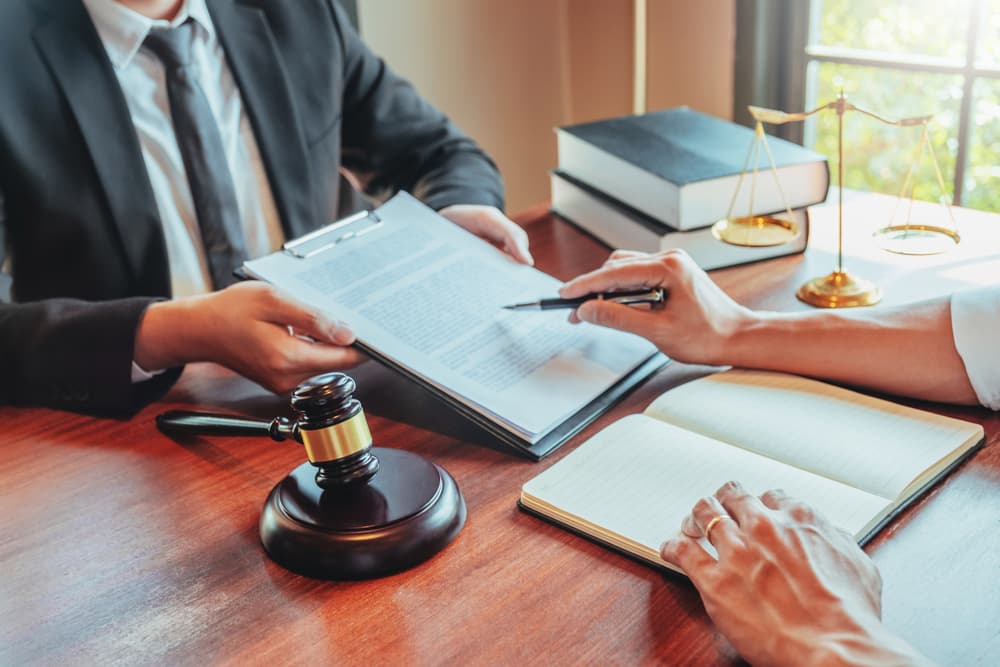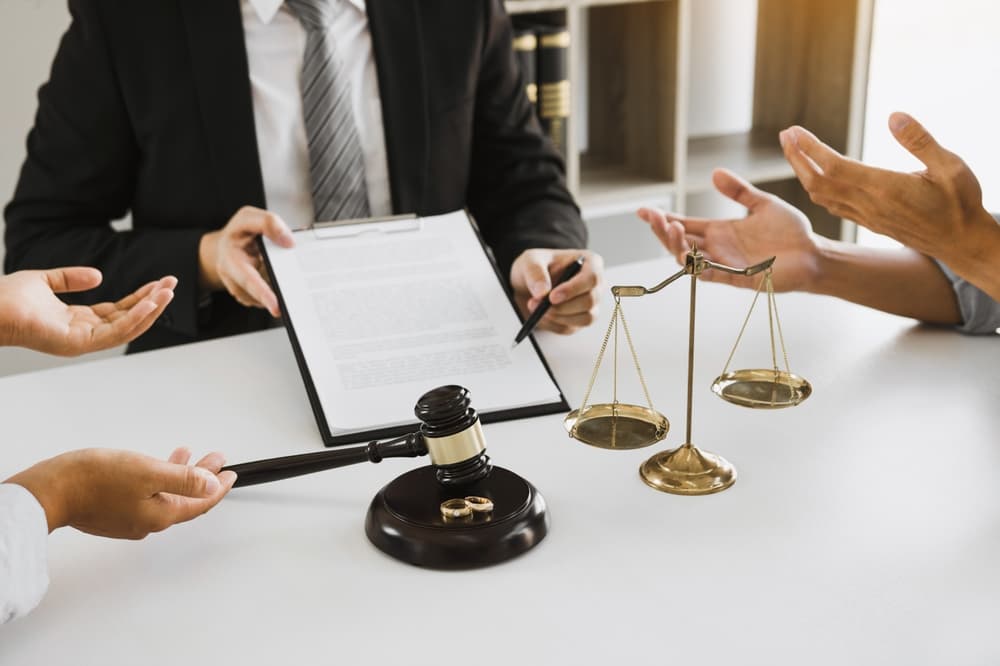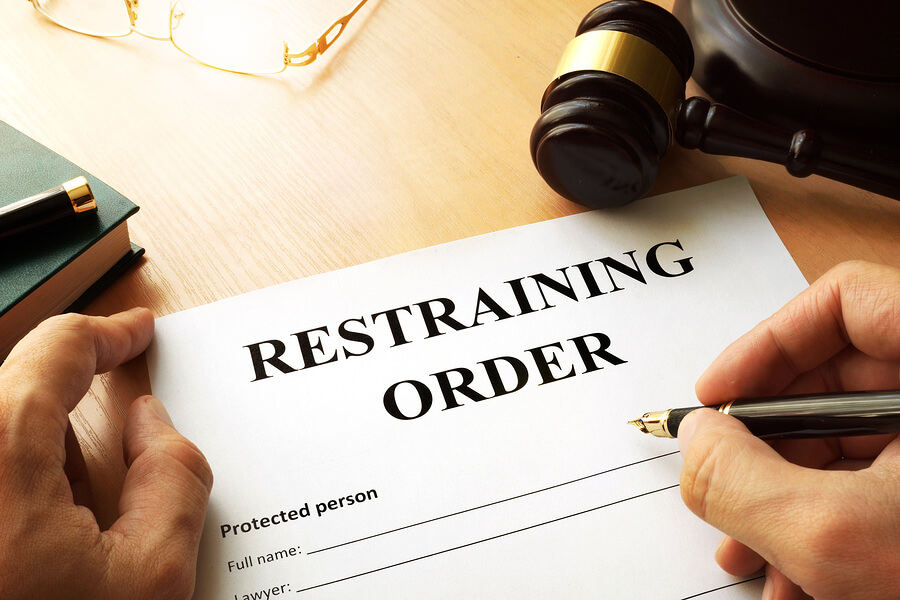October 9, 2025
When someone threatens your safety or your family’s well-being, Florida law provides a path to protection through restraining orders, known legally as “injunctions for protection.” Whether you’re facing domestic violence, stalking, or harassment, understanding the process helps you take swift action to secure your safety.
Schedule a Free Initial Consultation
Key Takeaways for How to Get a Restraining Order in Florida
- Florida offers five types of protective injunctions: domestic violence, repeat violence, dating violence, sexual violence, and stalking
- You may file for free at any circuit court clerk’s office in Florida, with temporary protection potentially granted the same day
- Evidence strengthens your case, so gather texts, emails, photos, police reports, and witness statements before filing
Types of Restraining Orders in Florida
Florida law recognizes that threats come in different forms. The state provides five distinct types of injunctions for protection, each designed for specific situations.

Domestic Violence Injunctions
Domestic Violence Injunctions protect against abuse from family or household members. This includes spouses, former spouses, persons related by blood or marriage, persons who live together as a family, or persons who have a child in common.
Repeat Violence Injunctions
Repeat Violence Injunctions address situations where you’ve experienced two or more acts of violence or stalking by someone who doesn’t qualify for a domestic violence injunction. These acts must include at least one incident within the past six months.
Dating Violence Injunctions
Dating Violence Injunctions apply when violence occurs between individuals who have had a continuing and significant romantic relationship within the past six months. The relationship must have existed within the last six months and involved affection or sexual involvement.
Sexual Violence Injunctions
Sexual Violence Injunctions protect victims of sexual battery, lewd acts involving minors, or other sexual offenses. Unlike other injunctions, you need only one incident to qualify.
Stalking Injunctions
Stalking Injunctions guard against repeated harassment that serves no legitimate purpose. Under Florida Statute 784.0485, stalking includes cyberstalking and actions causing substantial emotional distress.
How to Request a Restraining Order in Florida
Filing for protection involves several steps, starting at that local circuit court clerk’s office. Depending on the situation, you may file in the county where you live, where the respondent lives, or where the violence occurred.
You must then request the appropriate petition form. For example, in domestic violence cases, you’ll need to complete Form 12.980(a). The clerk provides these forms free of charge.
When completing your petition, you must provide specific details about:
- Recent incidents including dates, times, and locations
- Any injuries sustained or medical treatment received
- Witnesses who saw or heard the incidents
- Previous police reports or case numbers
- Any weapons the respondent owns or has access to
Finally, you will file your completed petition with the clerk. Filing a protective order petition is free.
The Emergency Protection Process
When immediate danger exists, Florida courts may issue temporary (ex parte) injunctions without the respondent present. Judges typically review these petitions the same day you file.
If granted, your temporary injunction takes effect immediately upon service to the respondent. The sheriff’s department serves these papers at no cost to you. This temporary protection lasts up to 15 days, until your full hearing.
During this period, the temporary injunction may:
- Prohibit the respondent from contacting you
- Order them to stay away from your home, workplace, or school
- Grant you temporary custody of minor children
- Prohibit the respondent from owning firearms
Preparing for Your Final Hearing
Within 15 days of filing, the court schedules a final hearing where both parties may present evidence. This hearing determines whether to issue a final injunction.

Prior to the hearing, you will want to gather and organize your evidence, including:
- Text messages, emails, or social media posts showing threats or harassment
- Photographs of injuries or property damage
- Medical records documenting abuse-related treatment
- Police reports from any incidents
- Written statements from witnesses
At the hearing, present your case clearly and stick to the facts. The judge evaluates whether you’ve proven the need for continued protection. If granted, final injunctions may last indefinitely or for a specific period the judge determines necessary.
Schedule a Free Initial Consultation
After Your Injunction Is Granted
Once issued, always keep certified copies of your injunction with you, and provide copies to your workplace security, children’s schools, and trusted family members.
If the respondent violates any terms, contact law enforcement immediately. Violating an injunction constitutes a first-degree misdemeanor in Florida, punishable by up to one year in jail.
You may request modifications or extensions as circumstances change. You can do this by filing a supplemental petition through the clerk’s office if you need to extend protection or modify terms.
Special Considerations and Resources
Injunctions for Minors
Parents can act as petitioners by filing injunctions on behalf of minor children facing violence or threats. The legal process remains similar to filings initiated by adults, ensuring minors receive necessary protection while parents advocate on their behalf.
Available Resources in Florida

Florida offers various supportive resources to assist individuals navigating injunction filings:
- Khonsari Law Group: Provides skilled legal assistance with filing injunctions and navigating the legal process with empathy and discretion. Their team offers personalized guidance to protect your rights and your family’s safety.
- Domestic Violence Shelters: These organizations offer safety planning and emergency support for survivors and their families.
- Court Clerks: While they cannot offer legal advice, clerks assist with procedural questions and explaining paperwork.
- Multilingual Assistance: Many counties provide language services to accommodate those with limited English proficiency.
Local Support in St. Petersburg
For residents of St. Petersburg, injunction petitions may be filed at the Pinellas County Justice Center. Local advocacy groups such as CASA (Community Action Stops Abuse) offer ongoing support and guidance throughout the injunction process, helping survivors and families.
FAQ About Restraining Orders in Florida
What Proof Do I Need for a Restraining Order in Florida?
While not required, evidence strengthens your case significantly. Helpful proof includes photographs of injuries, threatening messages, police reports, medical records, and witness statements.
How Quickly Can I Get a Temporary Restraining Order in Florida?
Judges typically review temporary injunction requests the same day you file. If granted, protection begins immediately upon service to the respondent.
Do I Need a Lawyer to File for a Restraining Order in Florida?
No, you may file without an attorney. However, legal representation often helps present stronger cases, especially in complex situations involving children or property.
Protecting Your Future with Legal Support

Taking action to protect yourself requires courage. While Florida’s injunction process allows self-representation, having experienced legal guidance strengthens your position and helps navigate potential complications.
If you need assistance filing for protection in St. Petersburg, speak with someone who understands both the law and the human stakes involved. Call Khonsari Law Group at (727) 269-5300 for a confidential consultation about your situation.


